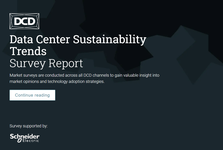International accounting standards bodies have published a set of rules which should help to root out greenwashing by making sustainability reporting more accurate.
The International Sustainability Standards Board (ISSB) has published a set of standards for climate disclosures, which can be used in annual financial and ESG reports from 2024.
They are based on existing standards from the G20's Task Force on Climate-related Financial Disclosures (TCFD) and could become mandatory if they are picked up by national governments.
The new rules have been welcomed by the UK government, which has already made the existing TCFD rules mandatory, and has indicated that it will adopt the new standards. They are also being considered in Japan, Singapore, Canada, Nigeria, Chile, Malaysia, Brazil, Egypt, Kenya, and South Africa, according to Reuters.
"These standards answer the clear market demand for complete, consistent, comparable, and reliable corporate sustainability disclosures," said a statement from the UK's Financial Conduct Authority (FCA).
For the UK Government, treasury minister Joanna Penn said: "We are committed to including reporting against UK endorsed versions of the IFRS sustainability disclosure standards launched here today," Reuters reported.
Elsewhere Baroness Penn described the ISSB rules as "the global baseline standard", saying that international reporting standards are crucial to allow firms to report their environmental impact across multiple jurisdictions, and also "providing investors with comparable and consistent information to inform capital allocation."
The ISSB project was started at the UN's COP26 climate conference in Glasgow in 2021, by the International Financial Reporting Standards Foundation (IFRS), which already provides financial accounting rules used around the world. The global securities authority IOSCO is expected to endorse the new standards, adding pressure to comply with them.
The project itself is designed to bring together information for capital markets investors, with disclosures aimed at a broader group of stakeholders including governments and consumers. The project was a combination of previous efforts by the Climate Disclosure Standards Board (CDSB) and the Value Reporting Foundation. It was welcomed by the G20's TCFD, and the World Economic Forum, and works closely with the Global Reporting Initiative (GRI), a statement from the FCA clarified.
Stop greenwashing
Standards are needed because there is a massive expansion in investments labeled as sustainable, without any clear guidelines as to which investments qualify, allowing a flow of money towards "greenwashing" investments which do nothing to reduce emissions. For instance, schemes to use gas flared at oil wells have been classed as green but do nothing to cut emissions.
Meanwhile, too many companies are reporting their climate impact in unreliable and incomplete ways - or not even bothering.
Forty-two percent of the world's top 4,000 companies do not provide basic data on their own Scope 1 and 2 carbon emissions, the London Stock Exchange Group's head of sustainable finance David Harris, told Reuters.
Beyond that, Scope 3 reporting is a minefield, where companies like Amazon have been extensively criticized for reporting which goes against standard practice.
The ISSB rules have come out while the European Union is working on its own disclosure rules, the Corporate Social Responsibility Directive (CSRD). The EU and ISSB are reportedly in discussion to harmonize the two sets of rules, but indications so far suggest that the ISSB has produced a more specific set of standards for carbon emissions, while the EU has gone more broadly to other areas within environmental impact and social governance.
"The ISSB standards build significantly from existing reporting frameworks and standards, and the ISSB has pledged to enhance interoperability with other international and jurisdictional sustainability-related standards to better support adoption," said an FCA statement sent to DCD. "This is good news for businesses using existing frameworks—they’ll be better positioned to align with the new ISSB standards. At their core, the ISSB standards will enable investors and other capital market participants to make informed investment decisions by providing information about companies’ sustainability-related risks and opportunities."
After a launch this week at the IFRS Foundation’s annual conference in London, the ISSB rules will be shown at events in stock exchanges around the world, including Frankfurt, Johannesburg, Lagos, London, New York, and Santiago de Chile. They will also feature at the ASEAN Capital Markets Forum in Singapore.
Within the standards, IFRS S1 provides disclosure requirements to communicate to investors about sustainability-related risks and opportunities. IFRS S2 sets out specific climate-related disclosures and is designed to be used with IFRS S1.
To help adopt them, the ISSB is setting up a Transition Implementation Group to support companies applying the standards.
Emmanuel Faber, ISSB Chair, said: "Today represents the outcome of more than 18 months of intense work to deliver an inaugural set of sustainability disclosure standards for the global capital markets. The ISSB Standards have been designed to help companies tell their sustainability story in a robust, comparable, and verifiable manner. We have consulted closely with the market to ensure the Standards are proportionate and will result in disclosures that are relevant for investment decision-making."
The FCA said that "ESG reporting can encourage technology companies to prioritize issues such as accountability, transparency, and ethical decision-making. Board diversity, executive compensation, and shareholder engagement can all be considered within this space."






